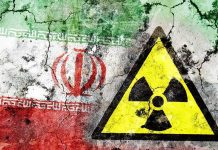
Calls for justice after a tragic crash have morphed into a political firestorm, with the Sikh trucking community now under attack as anti-immigrant fervor and scapegoating sweep the nation.
Story Snapshot
- A deadly crash involving a Sikh trucker in Florida has triggered a surge in anti-immigrant and anti-Sikh rhetoric.
- The Sikh trucking community in California reports increased harassment and fears scapegoating.
- Political figures are leveraging the incident to push for stricter immigration and licensing policies.
- Civil rights advocates warn that collective blame threatens both minority truckers and the industry’s stability.
Deadly Florida Crash Ignites National Immigration Debate
On August 12, 2025, a fatal accident on the Florida Turnpike involving Sikh truck driver Harjinder Singh claimed three lives and immediately became a national flashpoint. Singh was arrested and now faces both vehicular homicide charges and deportation proceedings. The incident’s coverage in national and local media has focused not only on the alleged illegal U-turn that triggered the tragedy but also on Singh’s religious identity and immigration status. As a result, the debate has expanded from a call for justice for the victims’ families to a wider examination of immigrant labor in the American trucking industry and the vulnerability of visible minority communities to scapegoating after high-profile tragedies.
California’s Sikh trucking community, which comprises a significant portion of the state’s drivers, reports a marked increase in harassment since the crash. Many Sikh truckers recount incidents at truck stops and on highways involving verbal abuse and threats, which advocacy groups like the North American Punjabi Trucking Association (NAPTA) and the Sikh Coalition have publicly condemned. These groups warn that politicizing individual tragedies erodes public trust and safety, as misinformation and targeted slurs circulate online and in person. Leaders in these communities are urging vigilance against unverified fundraising or misleading narratives, emphasizing the need for due process and fair treatment for all parties involved.
Political Leaders and Advocacy Groups Clash Over Response
Political figures, including Florida Governor Ron DeSantis, have seized on the incident to highlight what they describe as failures in immigration enforcement and commercial licensing. Their statements, amplified by media outlets, have drawn criticism from civil rights organizations, which argue that such rhetoric fosters collective blame and endangers law-abiding minority drivers. The Sikh Coalition has issued statements emphasizing the industry’s reliance on Sikh and other immigrant drivers, warning that escalating bigotry and scapegoating could undermine both civil rights and the stability of the U.S. trucking workforce. Meanwhile, advocacy groups continue to document and report harassment, calling for accountability and accurate information in both policy and public discourse.
Community organizations and industry leaders are working to address the aftermath by providing resources for affected drivers, cooperating with authorities, and advocating for anti-discrimination protections. They caution that the ripple effects of this backlash could extend beyond Sikh truckers, impacting broader South Asian communities and potentially prompting labor shortages if drivers feel unsafe or unwelcome. Reports indicate that legal proceedings against Singh are ongoing, with advocacy groups closely monitoring developments and advocating for transparency and respect for legal rights throughout the process.
Industry Stability, Civil Rights, and Broader Impacts
The trucking industry, already grappling with labor shortages, relies heavily on Sikh and other immigrant drivers to keep goods moving across the nation. A significant exodus of these drivers due to fear or discrimination could disrupt supply chains and further strain the economy. Advocacy organizations point out that Sikh drivers have a long history of service in U.S. trucking, and that targeting them after isolated incidents undermines industry stability and American values of due process. While political leaders frame their response as a matter of public safety and border control, critics argue that constitutional protections and individual rights must not be sacrificed for political gain. The ongoing debate highlights the tension between demands for accountability after tragedy and the need to protect minority communities from collective punishment and government overreach.
Sikh truckers face backlash after deadly Florida crash sparks anti-immigrant slurs https://t.co/Ee43nDOa5A
— Tuck The Frumpers (@realTuckFrumper) September 5, 2025
As the national conversation continues, industry experts and civil rights advocates warn that unchecked bigotry and policy overreaction could have long-term consequences for the trucking workforce and the broader American economy. Their message: justice and safety require facts, fairness, and a commitment to the constitutional principles that unite the nation, not knee-jerk scapegoating or erosion of individual rights. The Sikh trucking community’s experience serves as a cautionary tale of how quickly tragedy can be weaponized in the current political climate, threatening both livelihoods and foundational American values.
Sources:
Sikh truck drivers say they are being targeted since the deadly U-turn crash in Florida
Reflection on the Case of Harjinder Singh



